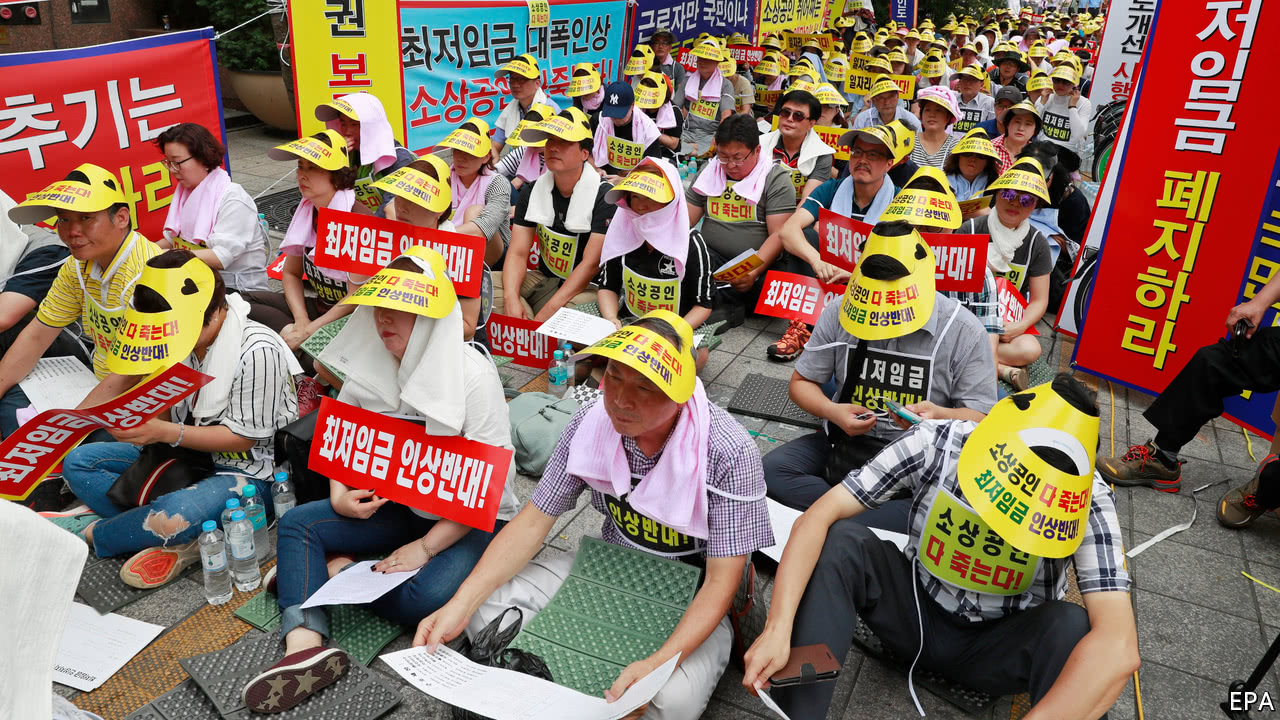South Korea’s soaring minimum wage
The Economist explainsSouth Korea’s soaring minimum wage
The government plans to raise the minimum wage 55% above its present level

Labour activists have long cherished the idea of a 10,000-won wage floor. One young campaigner invited photographers to a mock wedding, vowing that he would not actually marry his girlfriend until wages hit that target. Others demonstrated near a statue of Jeon Tae-il, a young South Korean who set himself alight in 1970 to protest poor working conditions. They argue that it is only fair that workers in the world’s 11th-biggest economy get a larger share of the riches. Their efforts paid off in May’s presidential election, when every major candidate pledged to meet the target, disagreeing only about how quickly to do so. Two said they would reach the goal by the end of their five-year term; the other three—including the eventual victor, Moon Jae-in—said they would do it by 2020.
Latest updates
A Brexit transition deal will be harder to reach than Britain thinks
Gene editing takes another step forward
Fears that Xi Jinping is bad for private enterprise are overblown
Zaryadye Park in Moscow is an architectural triumph
The financial markets are not the whole economy
Congestion in London is driving people off the buses
Small businesses claim the increase will force them to lay off staff. A survey by the Korea Federation of Micro Enterprise found 92.4% of respondents are considering cutting back on workers. This could pose a serious problem, since most people on the minimum wage work for smaller firms, not conglomerates such as Samsung. Chosun Ilbo, a conservative newspaper, grumbles that a 10,000-won minimum is a “disaster in the making” and claims that next year’s rise will leave workers “earning more money than the small business owners who employ them”. Economists generally find that modest increases in the minimum wage have no or very little effect on employment. (There is not much agreement concerning how big wage increases need to be to generate more substantial employment effects.) Even so, at a certain level employers could begin to cut back. Workers’ celebrations may yet turn sour.
No comments:
Post a Comment